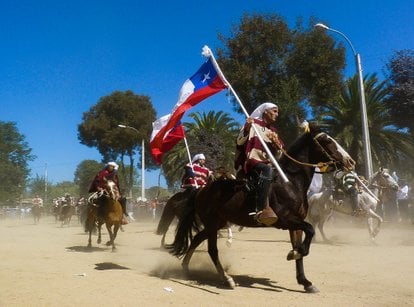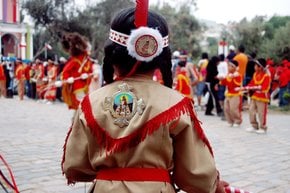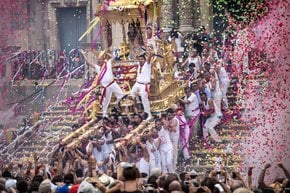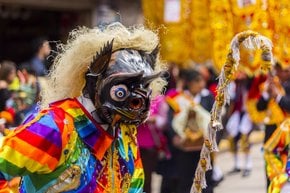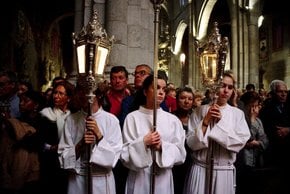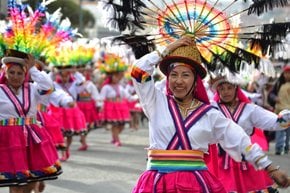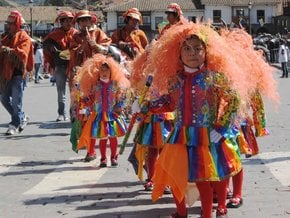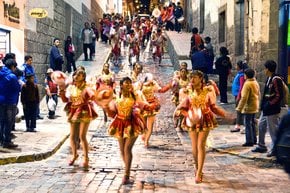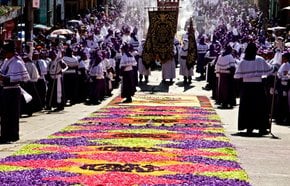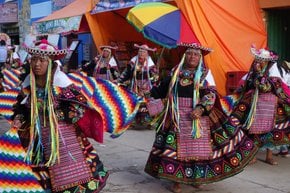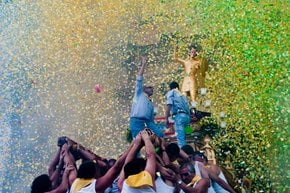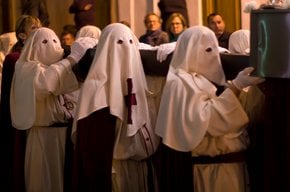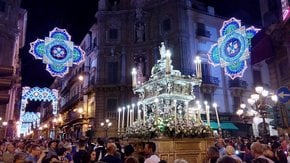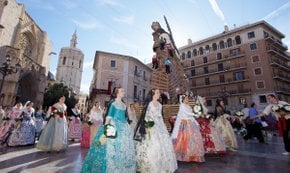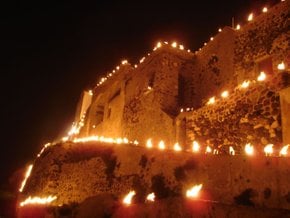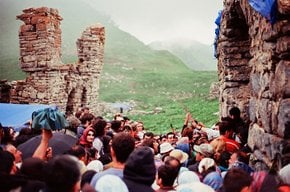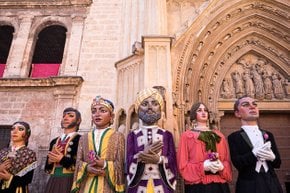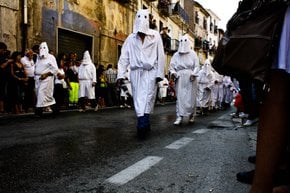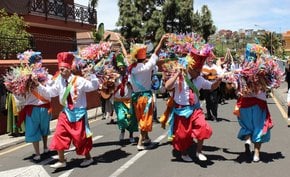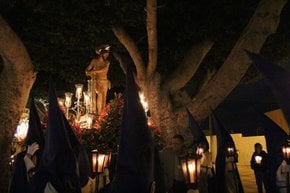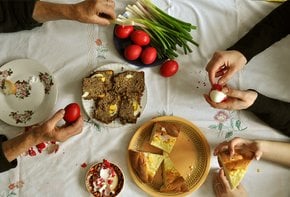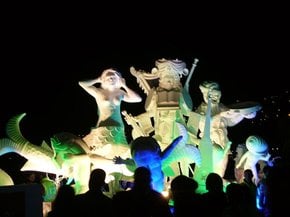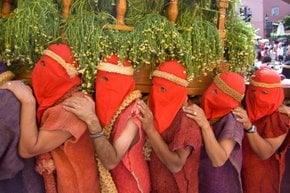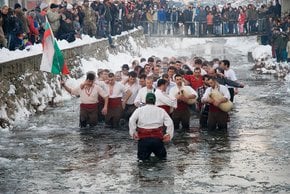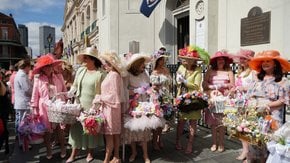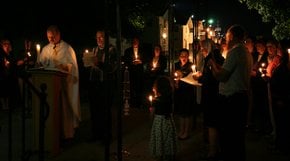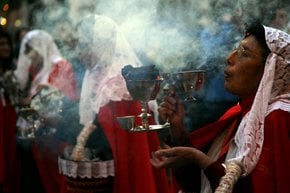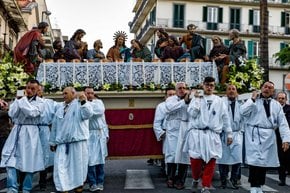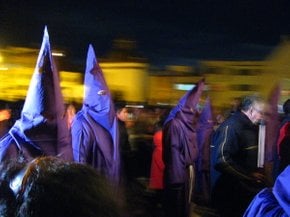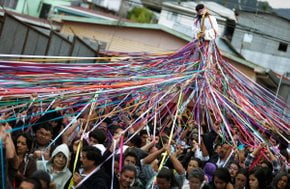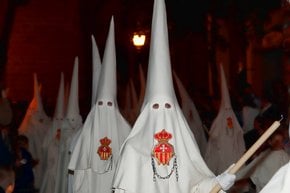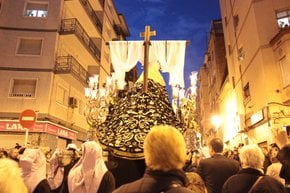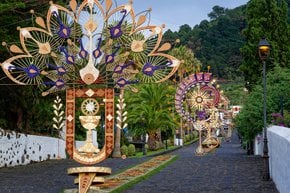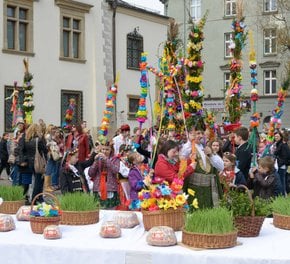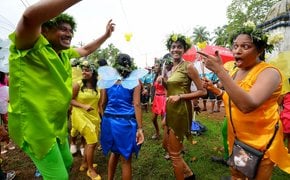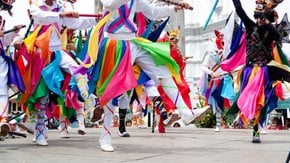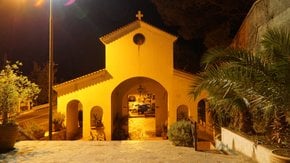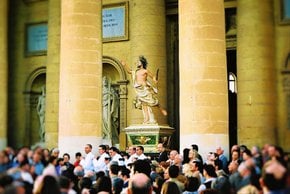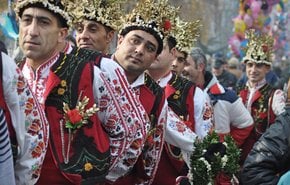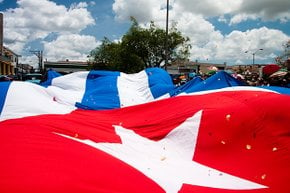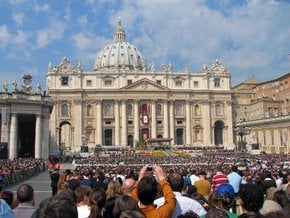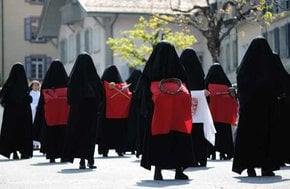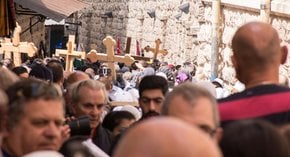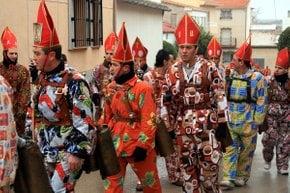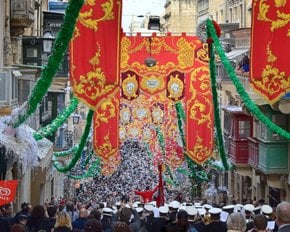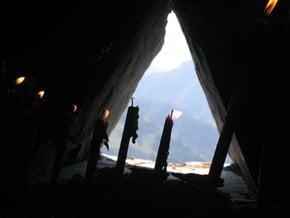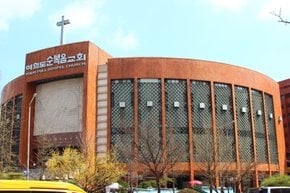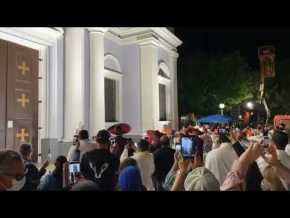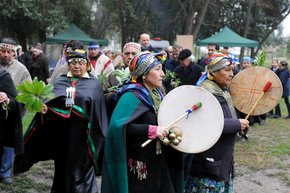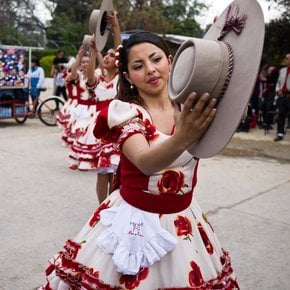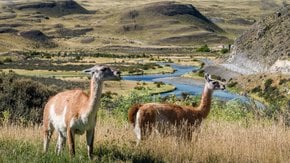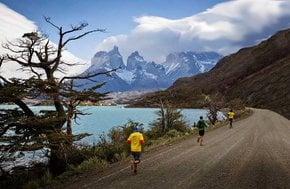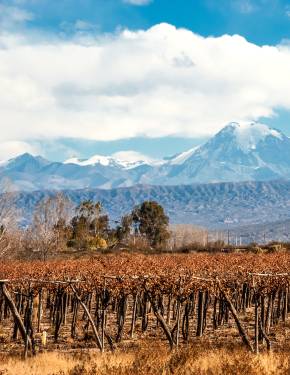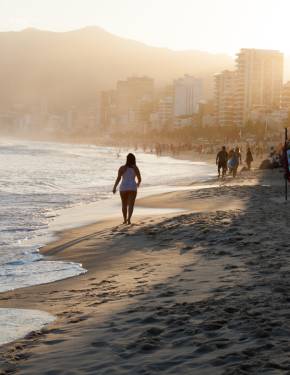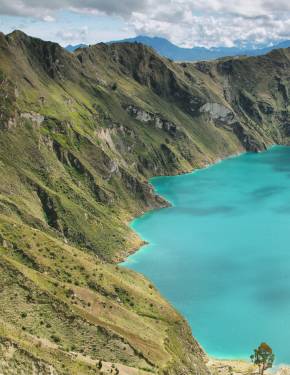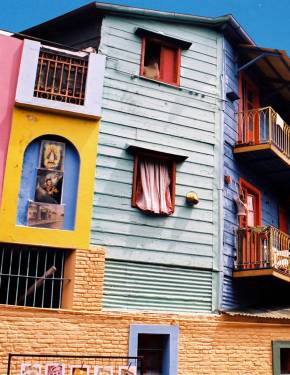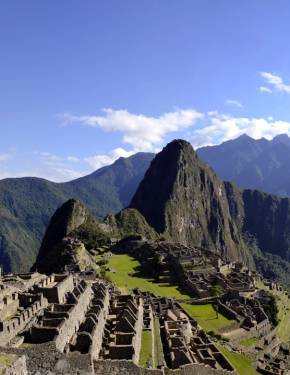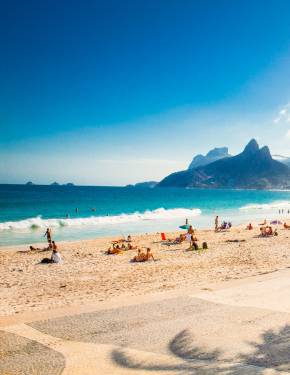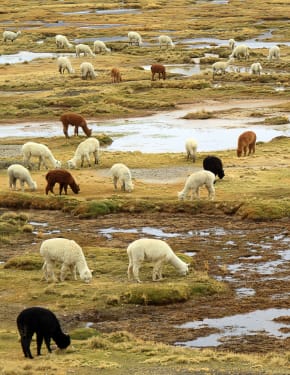Fiesta de Cuasimodo 2025 in Chile
Colourful religious processions of priests and Chilean cowboys mesmerise street-walkers on their way to the sick
Dates: April 27, 2025 (second Sunday of Easter)
Fiesta de Quasimodo, or the Festival of Quasimodo, occurs on the second Sunday of Easter, known as Divine Mercy Sunday. The streets of some of Chile's rural areas see an unusual spectacle: priests travel by beautifully ornated carts, motorbikes, or bikes accompanied by cowboy Huasos atop horses wearing bandanas. It is not just a mere ride for fun, the essence of this religious ritual consists of bringing the Holy Communion to the sick. This old Easter tradition survived only in a few central rural areas in Chile and is observed in eastern Santiago and a couple of villages, including Rancagua, El Monte, and San Antonio.
Festival Traditions
Processions set off after the morning mass, often gathering over a thousand participants. People may join the procession on horses, bikes, carts, cars, or simply walking. Usually, such a procession includes a bell-ringer who signals the priest has arrived—and families welcome the priest to a small altar at home prepared especially for the occasion. After the solemn part, other festivities take over the stage—it's time for music, dancing, food, and drinking.
This is what they call Fiesta de Cuasimodo, or Quasimodo Festival. The name has nothing to do with the well-known "Hunchback of Notre Dame.” It originates from a fragment of Latin service—“quasi modo geniti infantes,” meaning “like newborn children.” Thousands of volunteers who participate in such processions are called Quasimodists. The festival takes place in many places mostly in the Santiago area.
History of the Celebration
Fiesta de Cuasimodo is a long-lasting tradition dating back to Spanish colonial times. Back then it was a dangerous trip for the priests. Bandits would try to rob them for silver and money. In old times, cowboys were their bodyguards, but today it's more about preserving traditions. Modern-day huasos still wear typical garments. Only hats are substituted with a white cloth. Something hasn't changed at all over the time—on their way, people still treat the priest and his entourage to some corn beer "chicha" and wine.

